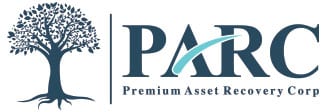The Role of Government and Policy in Addressing Medical Debt

Understanding Medical Factoring: A Guide for Healthcare Providers in 2024
October 18, 2023
Non-Recourse Debt Buyers: Who They Are and Why They Matter
November 1, 2023Introduction
Understanding the complexities of medical debt is crucial, given the intricate web of government regulations and policies surrounding it. Premium Asset Recovery Corporation (PARC) is dedicated to providing healthcare practices and administrators insightful guidance for proficient medical debt management, emphasizing the importance of compliance and proactive policy engagement.
In the following sections, we will delve into the government regulations related to medical debt, elucidating their implications and presenting strategies for effective maneuvering. Adherence to compliance isn’t just a requirement—it’s essential for mitigating legal risks and building trust with both patients and stakeholders.
Overview of Government Regulations Related to Medical Debt
Understanding the Regulatory Landscape
Government regulations related to medical debt are not just legal requirements but are critical to shaping the approach and operations of healthcare practices regarding debt management. Understanding these stipulations is fundamental for healthcare administrators and practices aiming for seamless debt recovery processes while following legal standards.
The Fair Debt Collection Practices Act (FDCPA)
One significant piece of legislation is the Fair Debt Collection Practices Act (FDCPA). This Act was designed and implemented to eliminate abusive practices in collecting consumer debts, promote fair debt collection, and provide consumers with a route to dispute and obtain validation of debt information to ensure accuracy. Healthcare providers and administrators must accurately understand the FDCPA as it plays a key role in outlining the legal boundaries of debt collections.
The Affordable Care Act (ACA)
Another important regulation is the Affordable Care Act (ACA), which also contains provisions relevant to medical debt. For instance, the ACA has specific stipulations regarding the reporting of medical debts to credit agencies, aiming to protect consumers from the negative impacts of medical debt on their credit reports and financial health. Being aware of these provisions lets healthcare providers implement practices that are both legal and considerate of the financial well-being of patients.
State-Specific Regulations
It’s also crucial to consider that states often have their own regulations regarding medical debt collection. These are often more restrictive than federal laws, so providers must be aware of and understand the specific laws applicable in the states where they operate.
Importance of Compliance for Healthcare Providers
Ensuring Legal Safety
Compliance isn’t simply a buzzword; it is the bedrock ensuring that your healthcare practice operates within the legal frameworks established by both state and federal laws. Ensuring strict adherence to regulations not only safeguards your practice from legal repercussions but also fortifies its reputation amongst patients and within the industry at large. Non-compliance carries substantial risks, including hefty fines and legal sanctions that could severely impact the financial standing and reputation of a healthcare provider. By adhering to compliance standards diligently, healthcare practices can significantly mitigate these risks, ensuring that their operations are not only legal but also ethical and patient-centric.
Building Trust with Patients
Trust is an invaluable currency in the healthcare sector. When patients recognize that a healthcare provider is diligent about compliance, it fosters a sense of reliability and trust. This perception not only enhances the provider-patient relationship but also promotes smoother transactions and interactions, particularly when it comes to sensitive matters like medical debt.
Facilitating Efficient Revenue Cycle Management (RCM)
Compliance is integral to efficient Revenue Cycle Management (RCM). RCM encompasses the entire life of a patient account, from creation to payment. With regulations clearly outlining how medical debts should be handled, compliance ensures that the revenue cycle progresses smoothly without legal hindrances, optimizing the financial health of the healthcare practice.
Staying Ahead of the Curve
Actively engaging with ongoing policy developments in the realm of medical debt isn’t just about adherence — it’s about anticipation. By staying informed and proactive, healthcare providers can foresee potential changes, prepare accordingly, and implement adjustments in their debt management practices efficiently. This proactive approach ensures not only compliance but also a strategic advantage in a competitive and regulated market.
Conclusion
Navigating Medical Debt with Confidence
In the ever-changing realm of medical debt regulations, proactive engagement with policy developments is not a mere recommendation; it is essential. It helps healthcare providers stay ahead in the market, fosters positive relations with patients, ensures smooth transactions, and mitigates compliance risks. Engaging proactively with policy shifts is therefore a vital step for healthcare practices aiming to handle the complex field of medical debt management effectively and ethically. Being vigilant and adaptive to policy developments offers providers a strategic edge, ensuring they are always prepared, compliant, and patient-centric in their approach to medical debt.
Premium Asset Recovery Corporation (PARC) stands as a dedicated partner for healthcare practices and administrators. We aim to guide you through the complexities of medical debt with confidence and proficiency, offering tools and insights that equip you to adapt to the changing regulatory environment with a focus on patient-centered approaches. Click here to learn more about PARC.
With these invaluable tools and insights at your disposal, you can safeguard your healthcare practice from potential pitfalls and significantly enhance service delivery and patient relations in medical debt, navigating through challenges with assurance and expertise.
Tools and Resources for Further Reading
ACA International: A great resource for credit and collection professionals, offering valuable insights and support.
HFMA: The Healthcare Financial Management Association provides extensive guidelines for the effective management of healthcare revenue cycles.
CFPB: The Consumer Financial Protection Bureau (CFPB) is a U.S. government agency responsible for safeguarding consumers in the financial marketplace. It focuses on transparent practices and consumer education to promote fairness.


